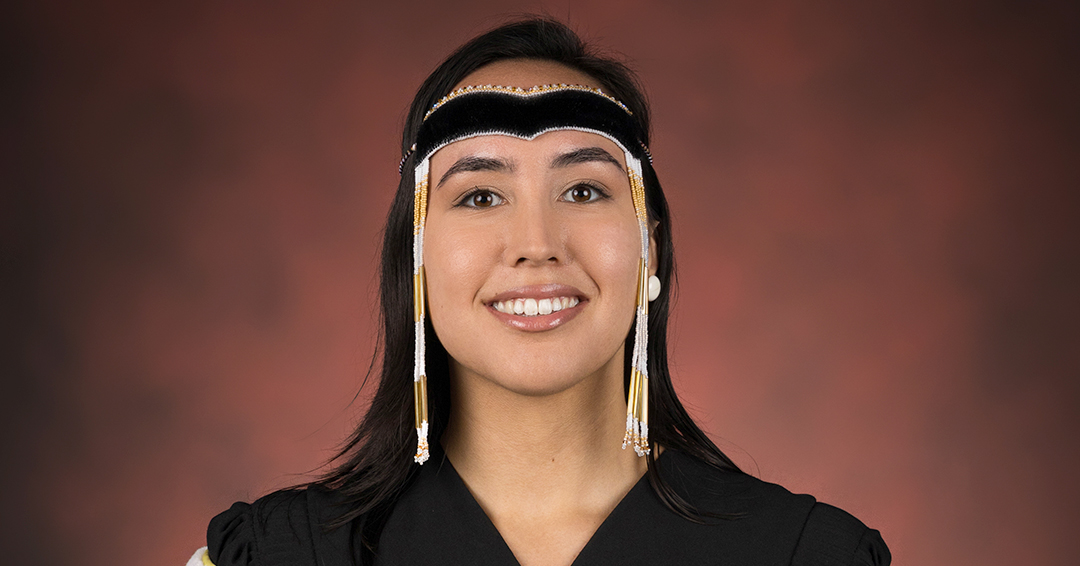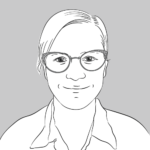
Med student Madeline Yaaka on track to become first Inuk physician from Nunavik
Madeline Yaaka made history when she entered McGill’s MDCM program last month. An Inuk hailing from Kangiqsujuaq, in Nunavik, northern Quebec, she was already her community’s first university grad (graduating last spring with a BSc in Biology from McGill) and is now the region’s first medical student. If all goes well, in 2027 she’ll become its first Inuk physician.
Yaaka’s success is extra special for Alex Allard-Gray, Program Manager for the Indigenous Health Professions Program (IHPP) , who’s known Yaaka since she participated as a camper and later as a senior camp counsellor in the Eagle Spirit Science Futures Camp, the STEM camp for Indigenous youth run by the IHPP. “Madeline is a champion for Inuit people and a beacon of hope for youth,” Allard-Gray, himself an Eagle Spirit alum and former Outreach Coordinator who organized the camp, said at May’s Scarf Ceremony for Indigenous grads.
North and South
We caught up with Yaaka just before she headed back to Montreal for the UGME orientation at the end of August. Speaking from home via Zoom – “It’s quite foggy today, so the Internet is kind of iffy,” she warned – she reflected on the contrast between the two worlds she lives in.
“I’ve been going for hikes and visiting family and friends and also helping prepare some traditional food that we’ve been harvesting – beluga, Arctic char and also some caribou,” she says of her summer in Kangiqsujuaq, a village of about 800 people. “When my father was still alive, we’d go camping almost every weekend and in the summertime we’d go longer and I used to hunt as well.”
She loves being home, but admits there are a few things she misses from Montreal. “I’ve been craving avocadoes for some reason,” she says with a chuckle. “Fresh produce – that’s what I miss a lot. And long showers.” The unattainable avocado is emblematic of some of the basic things that are simply not available in many Northern communities, taken for granted in the South. Other shortages include a stable source of water (brought in by truck), access to health and dental care and a postsecondary-ready high school education. Yaaka experienced all of these first-hand – she had to move to Ontario to live with her aunt to upgrade her high school credits because the science prerequisites she needed to get into university weren’t available in Kangiqsujuaq.
Her accomplishments are hard won and she’s proud of them. She credits her parents – her mother is a teacher and her father was a noted hunter (he passed away just after Yaaka finished high school) – with making education a priority and encouraging her to push herself to excel. The pressure to succeed does weigh on her a bit, though, she confesses. “But I know that people from my community are very supportive. Whenever I go back home everybody’s congratulating me,” she says.
Inspiring journey
The Eagle Spirit camp was another crucial element in her journey. “I knew I wanted to be in a profession where I would be helping people, but I wasn’t quite set on medical school,” she recalls. “Eagle Spirit showed me that this was really what I wanted to do.” She liked that campers got hands-on experience drawing blood and doing CPR on manikins. “They also had presentations by Indigenous medical students and by an Inuk heart surgeon named Donna May Kimmaliardjuk, who shared their stories, which was inspiring.”
Yaaka is keen to start her medical training, though a little nervous. “It’s a bit daunting knowing that I’m going to be the only Inuk in these classrooms and in these settings, but I’m used to that feeling,” she says resignedly. Her experience as an Indigenous student at McGill has by and large been good, but she has had some distressing encounters with outmoded attitudes and outdated textbooks that either reinforce stereotypes or deny the impact of colonial policies on Indigenous communities. It’s stressful and lonely to step forward and correct these misperceptions, but Yaaka feels it’s her duty. “I have the tools and the space available to me to speak for people in my community,” she says. “Even though I’m just one person in a class, I hope it can make a difference.”
Health sciences futures?
Yaaka is also trying to make a difference back home. The fact that there are few Nunavimmiut in postsecondary education doesn’t surprise her given the obstacles – unimaginable to most Quebecers – students from Nunavik face. “It’s a very complex issue,” she says. “Basic human rights need to be met before we can go on to higher education. We need a bit more time and we need more resources in our communities.”
Still, she actively encourages youth in her community to do their best and give higher education a shot. “I try to go to the high school, the recreation centre and summer camps, to share my story whenever I get the chance. I tell the students: ‘It’s going to be difficult – but I know you can do it.’ And I hope they’ll see me and think, ‘OK, this is possible.’”
Outreach is nothing new for Yaaka. During her undergrad, she was involved with First Peoples’ House where she reconnected with some fellow former Eagle Spirit campers. There, she joined the Justice Centre and ran a mitten making course for urban Inuit and a parka making course. She also has a part-time gig for the regional radio station back home recording announcements in Inuktitut, her first language.
Yaaka isn’t sure yet what path she’ll take in medicine. “I’m keeping it open at this point, but I know if I would like to come back to my community, I’d probably have to be a family doctor, or maybe a specialist that would travel around,” she says. “But surgery also sounds really exciting to me because I like to sew and I like to make things.”
She’s quietly confident that everything will work out. “I think that growing up in Nunavik really made me adaptable to change and to know that I’m strong enough to solve whatever problem is ahead of me,’ she says. “It’s quite difficult growing up without all these basic services. You have to make it work with what you’ve got. So I think I’ll be ready for the challenge.”
Related:
Tears of joy and relief shed at Scarf Ceremony

